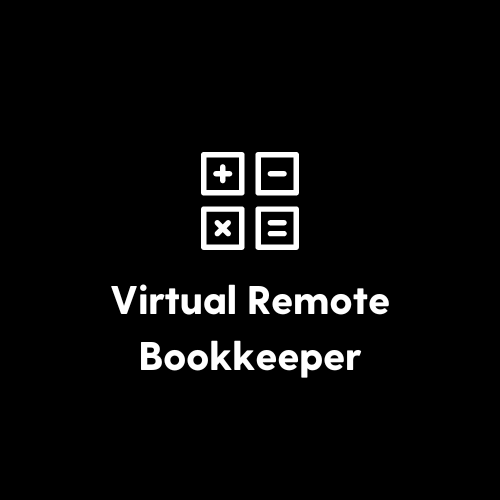
Managing cash flow is one of the most critical tasks for any early-stage startup. A healthy cash flow ensures your business can cover its expenses, invest in growth, and survive the tough early stages. However, many startups struggle with cash flow issues, which can be a major cause of business failure. In this blog, we’ll share essential cash flow management tips to help early-stage startups not just survive but thrive.
1. Understand Your Cash Flow
Before you can manage your cash flow effectively, you need to fully understand it. Cash flow is essentially the movement of money in and out of your business. Cash inflows come from sales, investments, or loans, while cash outflows include expenses like rent, payroll, and supplier payments. Regularly reviewing your cash flow statements will give you a clear picture of where your money is going and when you can expect funds to come in.
Pro Tip:
Utilize cloud-based accounting tools or a professional virtual bookkeeper to keep track of your cash flow. This ensures real-time visibility and helps you make informed decisions faster.
2. Build a Cash Reserve
It’s crucial for startups to maintain a cash reserve. This acts as a safety net to cover unexpected expenses or income dips. Ideally, your reserve should be enough to cover 3-6 months of operating costs. Building a reserve from day one might be challenging, but consistently saving a small percentage of your earnings can make a significant difference in the long run.
Pro Tip:
Automate a percentage of your income to go directly into a reserve account. This reduces the temptation to use these funds for non-emergency purposes.
3. Optimize Receivables
Startups often face cash flow issues due to delayed payments from clients. To optimize your receivables:
- Set clear payment terms: Ensure your clients are aware of the payment deadlines and penalties for late payments.
- Send invoices promptly: The sooner you send an invoice, the quicker you’ll get paid.
- Offer incentives for early payments: Encourage clients to pay early by offering small discounts or bonuses.
- Follow up on overdue invoices: Don’t hesitate to send reminders or follow-ups to ensure payments are made on time.
Pro Tip:
Leverage invoicing software to automate invoice generation and send reminders for unpaid bills.
4. Control Your Expenses
While it’s tempting to spend on every new tool or service that promises to grow your business, keeping costs under control is vital in the early stages. Regularly review your expenses to identify unnecessary costs and cut down on non-essential spending.
Cost-Cutting Ideas:
- Outsource tasks to freelancers or virtual assistants instead of hiring full-time employees.
- Negotiate with suppliers for better rates.
- Use free or low-cost marketing strategies like content marketing and social media.

5. Separate Personal and Business Finances
Many startup founders mix their personal and business finances, which can create confusion and make it harder to manage cash flow effectively. Opening a separate business account and tracking all business-related income and expenses is a crucial step to maintain clarity and avoid any financial complications.
Pro Tip:
Consider hiring a virtual bookkeeper to manage your business accounts and ensure clean financial records.
6. Forecast Your Cash Flow
A cash flow forecast allows you to anticipate future cash needs, giving you a chance to take preventive actions before problems arise. This includes projecting your income and expenses for the next 3-6 months. Having a clear forecast helps you avoid surprises, such as not having enough cash to pay your bills.
How to Forecast Cash Flow:
- Estimate future sales based on historical data or market trends.
- Predict your expenses, including fixed costs (rent, salaries) and variable costs (marketing, utilities).
- Include one-off costs, such as equipment purchases or software subscriptions.
7. Negotiate Better Payment Terms with Vendors
Negotiate favorable payment terms with your suppliers to better align your payables with your receivables. This will help you keep more cash in hand while you’re waiting for clients to pay their invoices. Consider extending your payment periods or asking for discounts on early payments.
8. Use Debt Wisely
Many startups rely on loans to fuel growth, but mismanaging debt can lead to cash flow problems. Be cautious when taking on debt and ensure that you can comfortably meet your repayment obligations without straining your cash flow. Always evaluate whether the loan will positively impact your cash flow in the long run.
Pro Tip:
Consult a financial advisor or bookkeeper before taking on loans to understand the potential impact on your cash flow.
9. Outsource Non-Core Activities
Outsourcing non-core activities like accounting, bookkeeping, and IT support can save time and reduce costs. By outsourcing, you can focus on your core business operations without the burden of managing multiple tasks. Plus, you’ll often find it cheaper than hiring in-house staff for these roles.
10. Regularly Review and Adjust Your Cash Flow Strategy
Finally, cash flow management is not a set-it-and-forget-it task. It’s essential to review your cash flow regularly and adjust your strategies based on the current situation. Regular reviews will help you identify issues early on and take corrective actions.
Conclusion
Effective cash flow management is crucial for the success of any startup. By understanding your cash flow, controlling expenses, optimizing receivables, and forecasting cash needs, you can set your business up for long-term growth and sustainability. As an early-stage startup, adopting these cash flow management strategies will help you navigate through challenges and keep your business on track.
Need Help with Cash Flow Management?
At Virtual Remote Bookkeeper, we specialize in helping startups manage their cash flow efficiently. Our virtual bookkeeping services are designed to give you real-time insights into your finances, so you can focus on growing your business. Contact us today to learn more!


